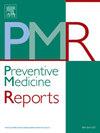政策制定者与伦理学家的合作,以改善美国的公共卫生
IF 2.4
3区 医学
Q2 PUBLIC, ENVIRONMENTAL & OCCUPATIONAL HEALTH
引用次数: 0
摘要
目的确定决策者如何与生物伦理学家互动,他们对未来参与的兴趣,以及他们这样做的动机和犹豫。方法于2023年9月15日至11月2日对美国政策制定者进行了三次全国性调查(N = 1105),其中包括地方政府选举政策制定者的代表性样本(N = 459);本地管理人员(N = 288);以及提供家庭支持服务的州和地方公务员的多样化(未加权)样本(N = 358)。调查评估了政策制定者目前与生物伦理学家互动的普遍程度,未满足与他们更多接触(以及哪些政策主题)的愿望,以及在面临公共卫生挑战时对与他们接触的价值的犹豫。结果只有12.1%的当选决策者(95% CI: 9.0%, 16.3%), 6.6%的管理人员(95% CI: 4.2%, 10.1%)和14.2%的公务员(95% CI: 11.0%, 18.3%)报告最近与生物伦理学家有过互动。然而,40.1%的当选决策者(95%置信区间:34.8%,45.6%)、40.0%的管理人员(95%置信区间:34.1%,46.2%)和47.9%的公务员(95%置信区间:42.5%,53.3%)表达了对更直接参与的愿望未得到满足。党派差异是存在的,每个样本中的民主党人都表达了更多未满足的愿望。与生物伦理学家互动的关键犹豫是,人们认为他们会推动政治议程,而不会分享实用信息。结论许多决策者在努力促进和保护其社区的健康时,希望从生物伦理学社区的人那里寻求建议,尽管报告的参与程度很低。在广泛呼吁在制定公共卫生政策时更多地了解伦理知识之际,生物伦理学家有一个影响和塑造次国家层面公共政策的关键机会。本文章由计算机程序翻译,如有差异,请以英文原文为准。
Policymakers' engagement with ethicists to improve public health in the United States
Objective
To determine how policymakers interact with bioethicists, their interest in future engagement, and their motivation and hesitations to do so.
Methods
Three nationwide surveys of United States policymakers (N = 1105) conducted September 15–November 2, 2023, including representative samples of local government elected policymakers (N = 459); local managers (N = 288); and a diverse (unweighted) sample of state and local civil service workers who provide family support services (N = 358). Surveys assessed the prevalence of policymakers' current interactions with bioethicists, unmet desire to engage with them more (and on which policy topics), and hesitations about the value of engaging with them when facing public health challenges.
Results
Only 12.1 % of elected policymakers (95 % CI: 9.0 %,16.3 %), 6.6 % of managers (95 % CI: 4.2 %,10.1 %), and 14.2 % of civil servants (95 % CI: 11.0 %,18.3 %) reported recent interaction with a bioethicist. Yet 40.1 % of elected policymakers (95 % CI: 34.8 %,45.6 %), 40.0 % of managers (95 % CI: 34.1 %,46.2 %), and 47.9 % of civil servants (95 % CI: 42.5 %,53.3 %) expressed an unmet desire for more direct engagement. Partisan differences were present, with Democrats in each sample expressing more unmet desire. Key hesitations to interacting with bioethicists were a perception they would push a political agenda and not share practical information.
Conclusions
Many policymakers wish to seek counsel from those within the bioethics community as they work to promote and protect the health of their community, despite low levels of reported engagement. Amidst widespread calls for more ethically-informed public health policymaking, there is a key opportunity for bioethicists to influence and shape public policy at sub-national levels.
求助全文
通过发布文献求助,成功后即可免费获取论文全文。
去求助
来源期刊

Preventive Medicine Reports
Medicine-Public Health, Environmental and Occupational Health
CiteScore
3.90
自引率
0.00%
发文量
353
 求助内容:
求助内容: 应助结果提醒方式:
应助结果提醒方式:


